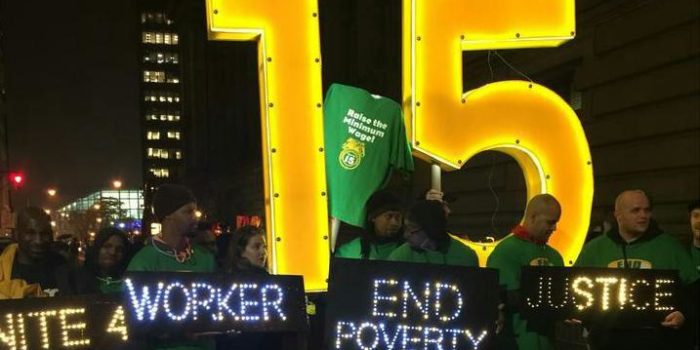In the past, concessions would be given to workers to stave off talk of revolution. Think of the new deal, etc.
These days, whether through incompetence or ideological intent (the end result is the same so the distinction doesn’t matter much to me), the ruling class just will not allow any pumping of the brakes, any tiny release valve to stop the pressure building.
I find it a fascinating phenomenon that they are incapable of doing something positive for society, even to save their own skin. It baffles me, especially considering how successful it has been in the past.


I don't know, and I find the answers people give here unsatisfactory. Let's see a few of the things that come to my mind:
They don't care - if the ruling class doesn't care about the poors and is a lot more worried about their own wealth. Probably a factor. But you would have to be a complete psychopath and even then you would know that this is bad governance.
Ideology - blinded by the ideology of capitalism and free market they may believe that it is not the government's job to fix things and that it all should fix itself. Idk, some of them definitely. Maybe they also genuinely believe that implementing broader policy is going to be bad down the road. Maybe the maths do not add up and they don't want to admit that the economical theory is wrong. Maybe it shows something catastrophic.
Bureaucracy - never underestimate the power of bureaucracy, and all these tiny procedures, documents and games, that because they have bought into it don't want to bypass. Seems like a factor, but incomplete. What do they risk? Getting sued?
Isolation - maybe the ruling class has just lost touch with what is happening on the ground, abd surrounded by grifters and consultants, they think they are doin their best... Combined with the above seems like it is a big component.
Grim pragmatism and opportunism : more dead people, less weight on the already struggling social security. Crises offer opportunities.
Incompetence - maybe theyre out of their depths and have no idea what to do, cause their job was never supposed to pass actual legislature, just maintain things as they are.
Complexity - maybe things are that difficult and complex, and bureaucracy plays a role here. Maybe they are doing their best, and it's all difficult and takes time.
Elite division - too many disparate interests and the fight for power have completely taken over, so everything ends up in a gridlock, and simply decisions cannot be made, because there is always someone with enough power to cause problems that causes problems...
Fear: maybe the situation is so grim, tha they know it doesn't matter what they do, it all comes down collapsing, so they're just trying to make it last the longest
Gerontocracy - a lot of very old people in important positions, we know some are losing it, maybe some are ran by their staffers in truth. Again a lot of potential for chaos, inability to reach decisions and overall gridlock.
Probably a combination of all these. The one thing sure is the one thing we observe: the elites act as if they are fractured, disconnected from the plight of the people, and unable to pass anything effective. The only things that pass are the ones that be edit Wallstreet, and this is because Wallstreet has the most pressure there. Maybe it is worth looking at what kind of letter to shareholders and the like people on Wallstreet are sharing. Or what they're lobbying for. And look at the Business plot and the people behind it, and their motivations. These people ultimately did win.
Finally it all does remind me in a lot of ways of the last years of the USSR and it's sattelites. Same incompetencies, inability to act, hubris, bureaucracy, corruption..
I know some other fractured things
:gui-better:
How about: the falling rate of profit does not allow the same level of concessions that were granted before. After all the neoliberal reforms were conceived in the middle of a global profitability crisis and managed to stop the fall for a few decades
And / or: deindustrialization has turned the vast majority of the ruling class into financial as opposed to industrial capitalists. Financial capitalists are not harmed by falls in consumption, in fact they are completely uninterested in the material product of the United States and their profit is composed of whatever they can leech off the local and international industrialists.
This needs expansion but it's an idea.
Part of the problem is I think we are still attached to the anachronism of nation states. Most of the economy is multinational now and the people who run and benefit from it are materially separated from the American people. So to some degree or another they have less of an interest in seeing the American peoples needs met.